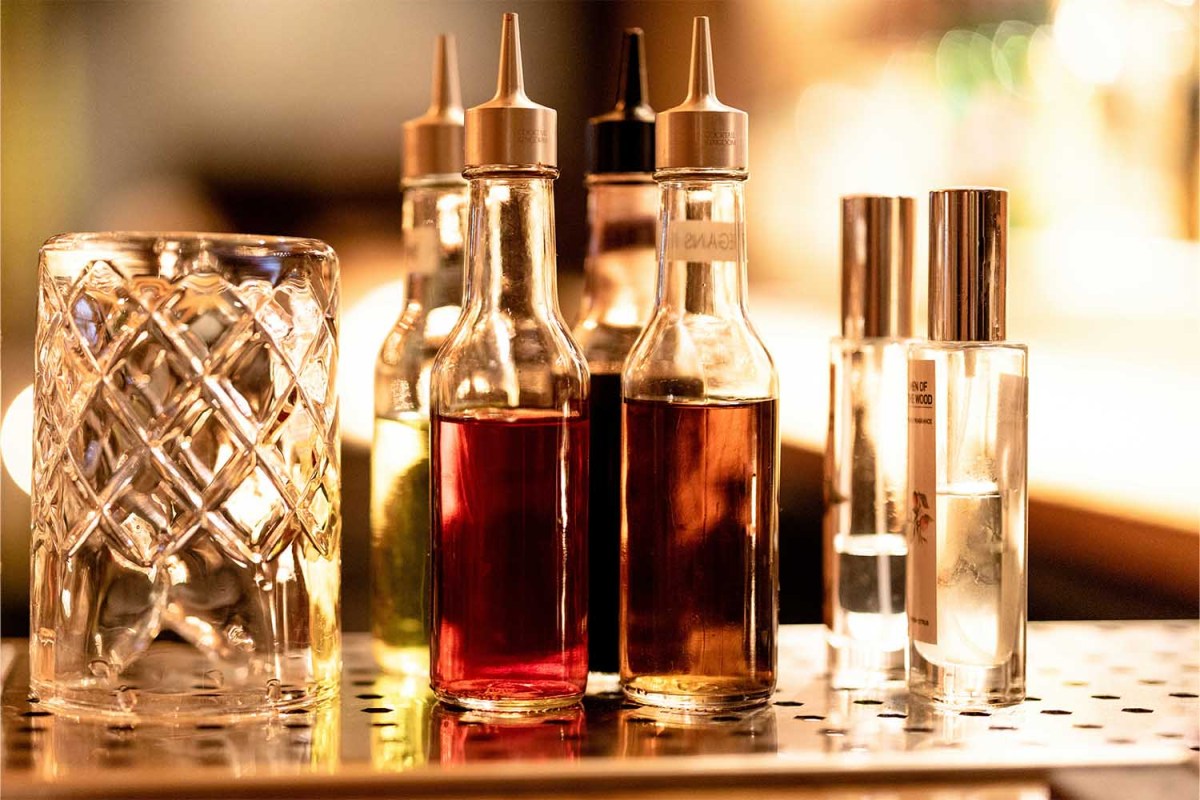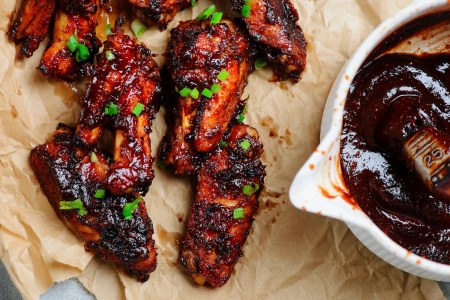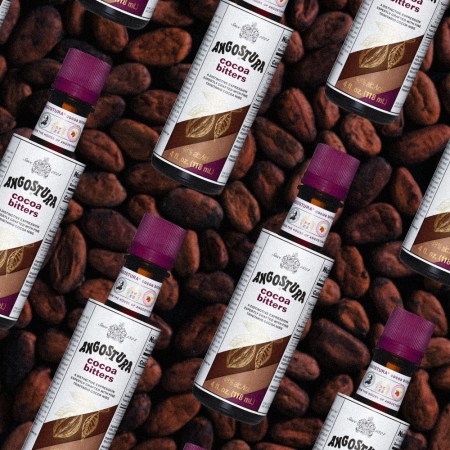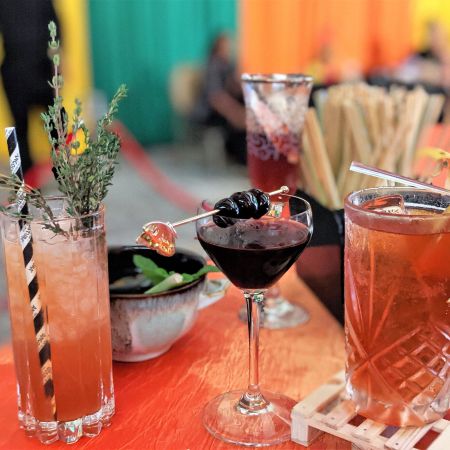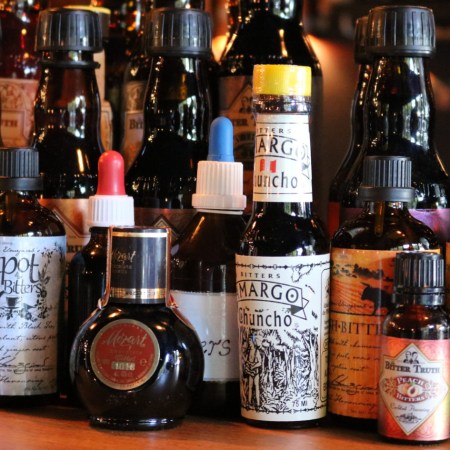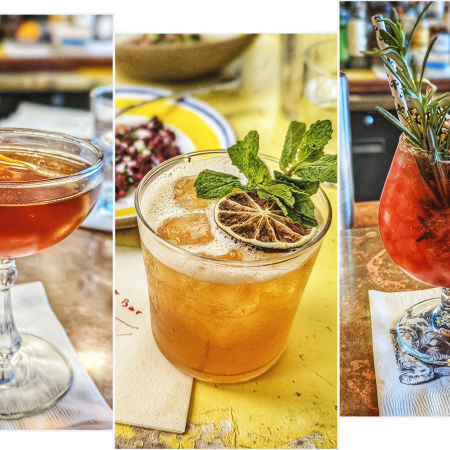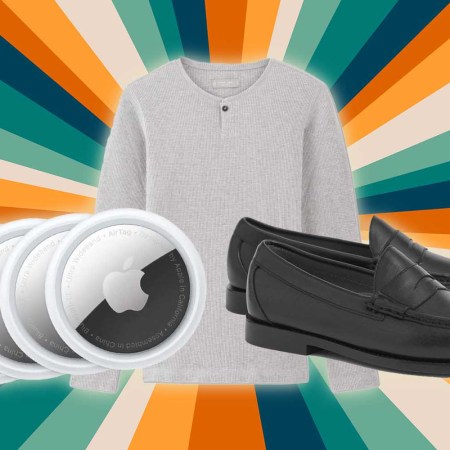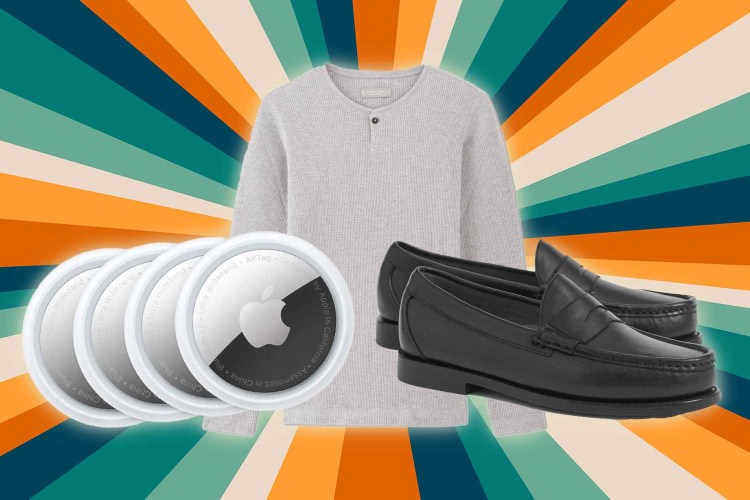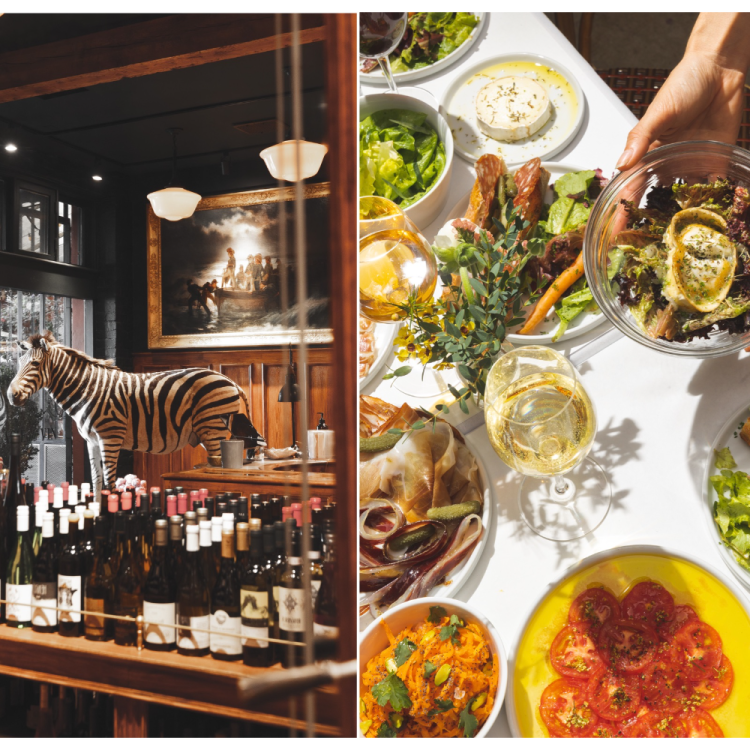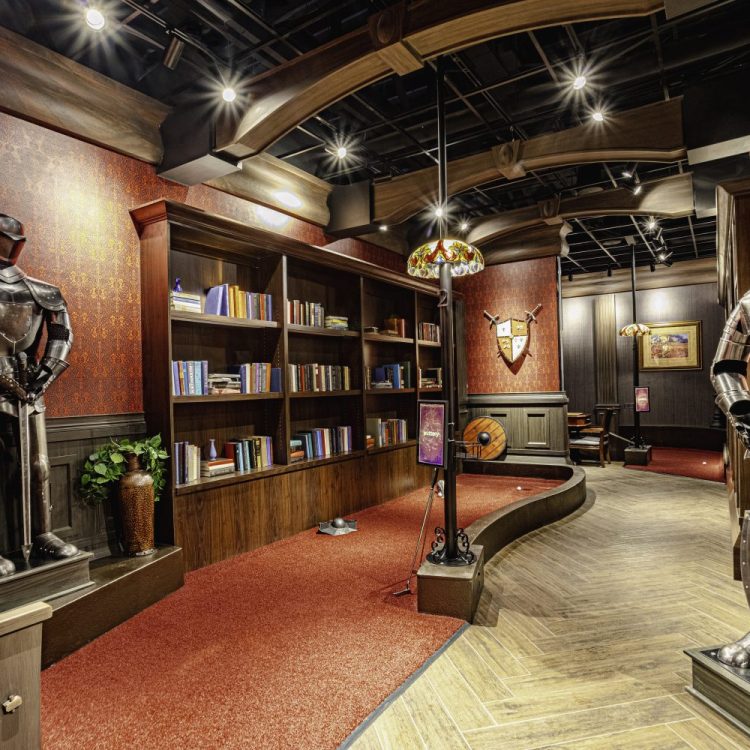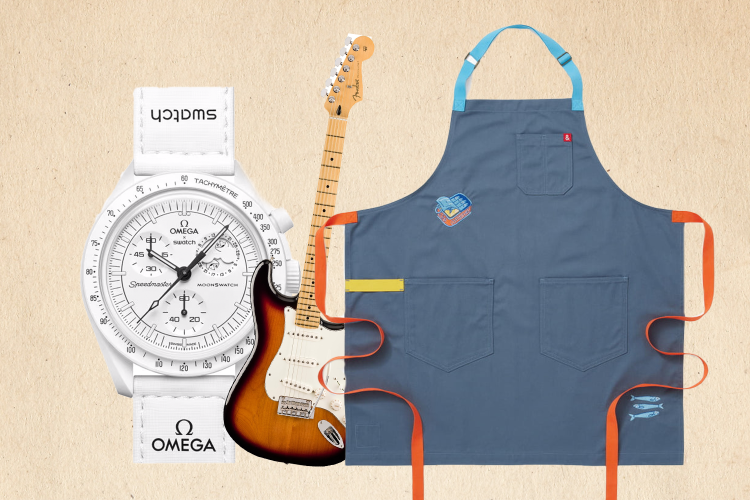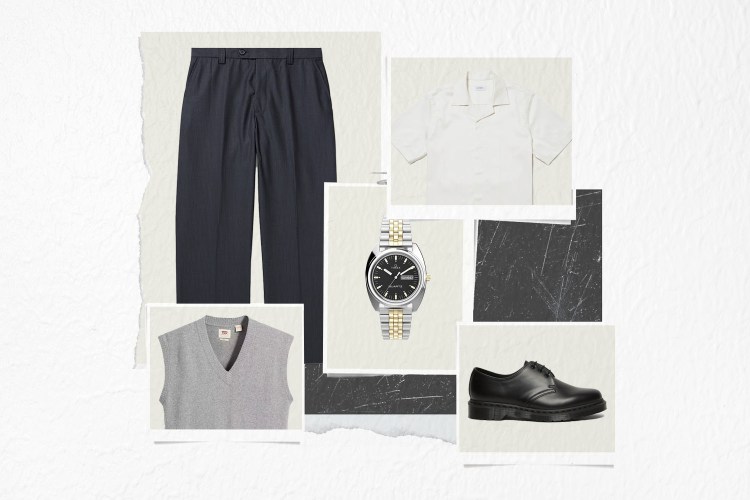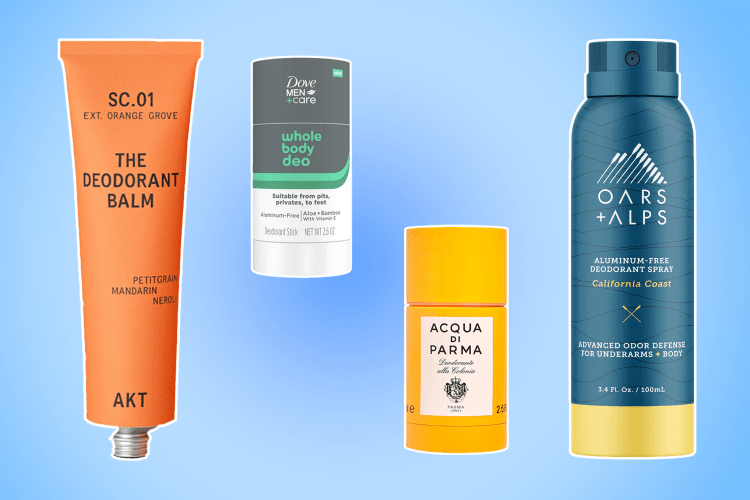Bitters occupy a strange liminal space between spirit and mixer. With just a few dashes, these highly concentrated infusions can transform a drink, like seasoning for your libation. Though bitters are somewhere between 35% and 45% alcohol, they’re used in such small amounts that their impact on a drink’s ABV is negligible. But that’s not the point. Bitters amplify the flavor and aroma of a drink and add discrete elements that shine through the heavier ingredients.
Because of this, bitters can be highly specialized and sometimes confusing. How do you know which cocktails require bitters and which bitters go with which cocktails? If you’re a home bartender, what do you need to keep on hand? And what’s an X-factor you can have in your bar cart to really wow your guests? Follow along as we map the universe of cocktail bitters, from the essential to the borderline gratuitous.
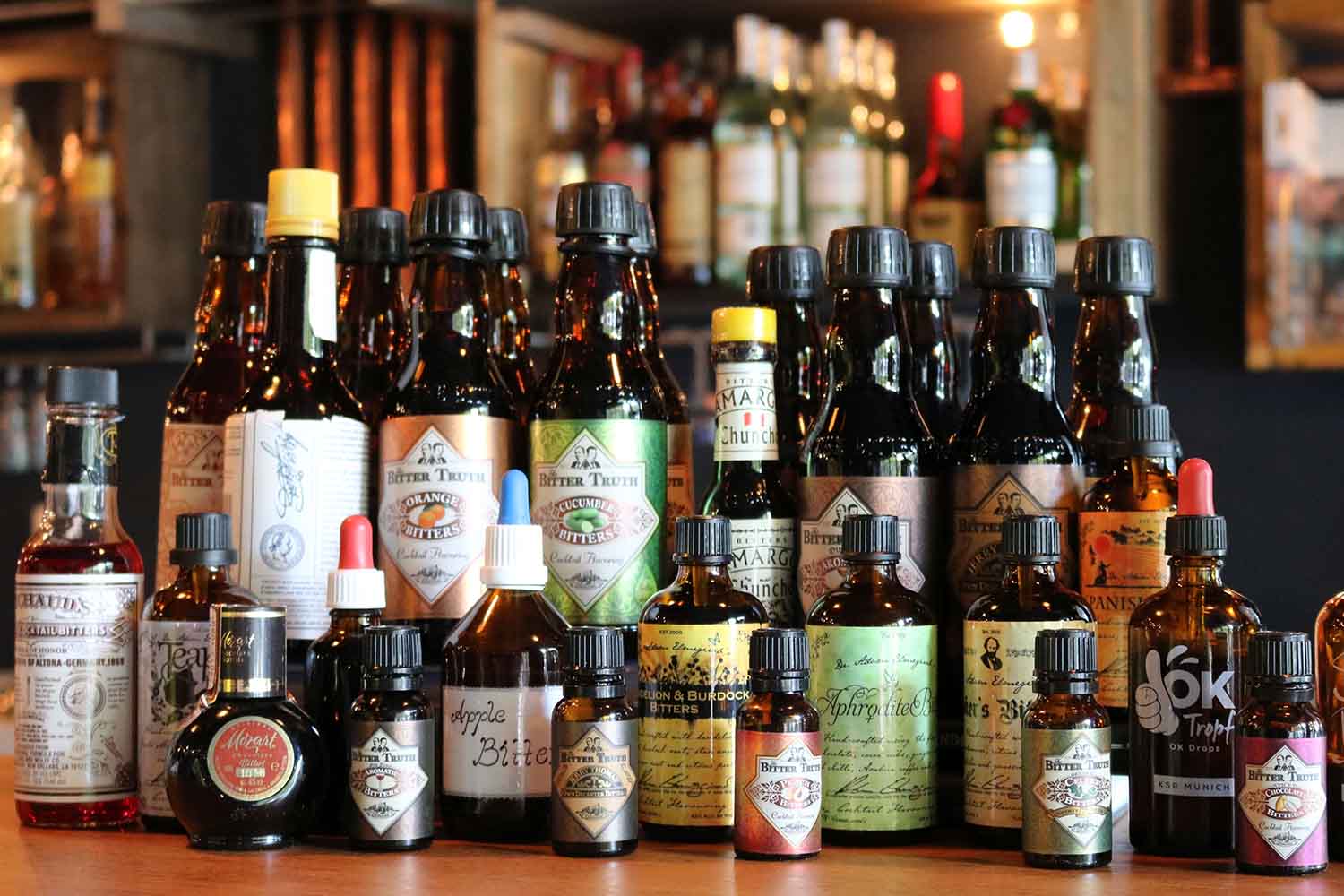
The Classics
There are three bitters brands that every bartender should keep on hand. If you only invest in Angostura, Peychaud’s and Regan’s bitters, you will have elevated your drink-making repertoire to include just about any classic cocktail.
Angostura bitters are the standard bearer of all bitters. The most versatile bottle you can keep on your bar cart, Angostura is made from a proprietary mix of spices, but the trademarked recipe (reportedly) doesn’t contain Angostura bark, like many of its competitors do. These off-brands are often marketed under the name “old-fashioned bitters” or “angobitters,” and all varieties feature hints of clove, cardamom, orange peel and gentian root. Whatever the makeup, Angostura is essential if you want to make by-the-book Manhattans, Old Fashioneds, Pisco Sours or the simple but classic bitters and soda.
Peychaud’s bitters are proprietary bitters that date back to the 1800s. Peychaud’s contains a few edgier flavors, like mint and anise. They are the must-have bitters for mixing up a Sazerac or Vieux Carré, signature cocktails of New Orleans and where Peychaud’s first made landfall in the United States. Though they have distinct qualities, you can easily swap Angostura for Peychaud’s in an Old Fashioned for a zestier alternative.
Regan’s is the most common brand of orange bitters, but it’s the least established name of the classic three (you’ll see a harried picture of inventor Gary Regan on the bottle). If you’re making Rob Roys or Negronis, orange bitters like Regan’s are essential. They also elevate vodka-based cocktails like Cosmopolitans and Martinis, giving them a bright shot of citrus.
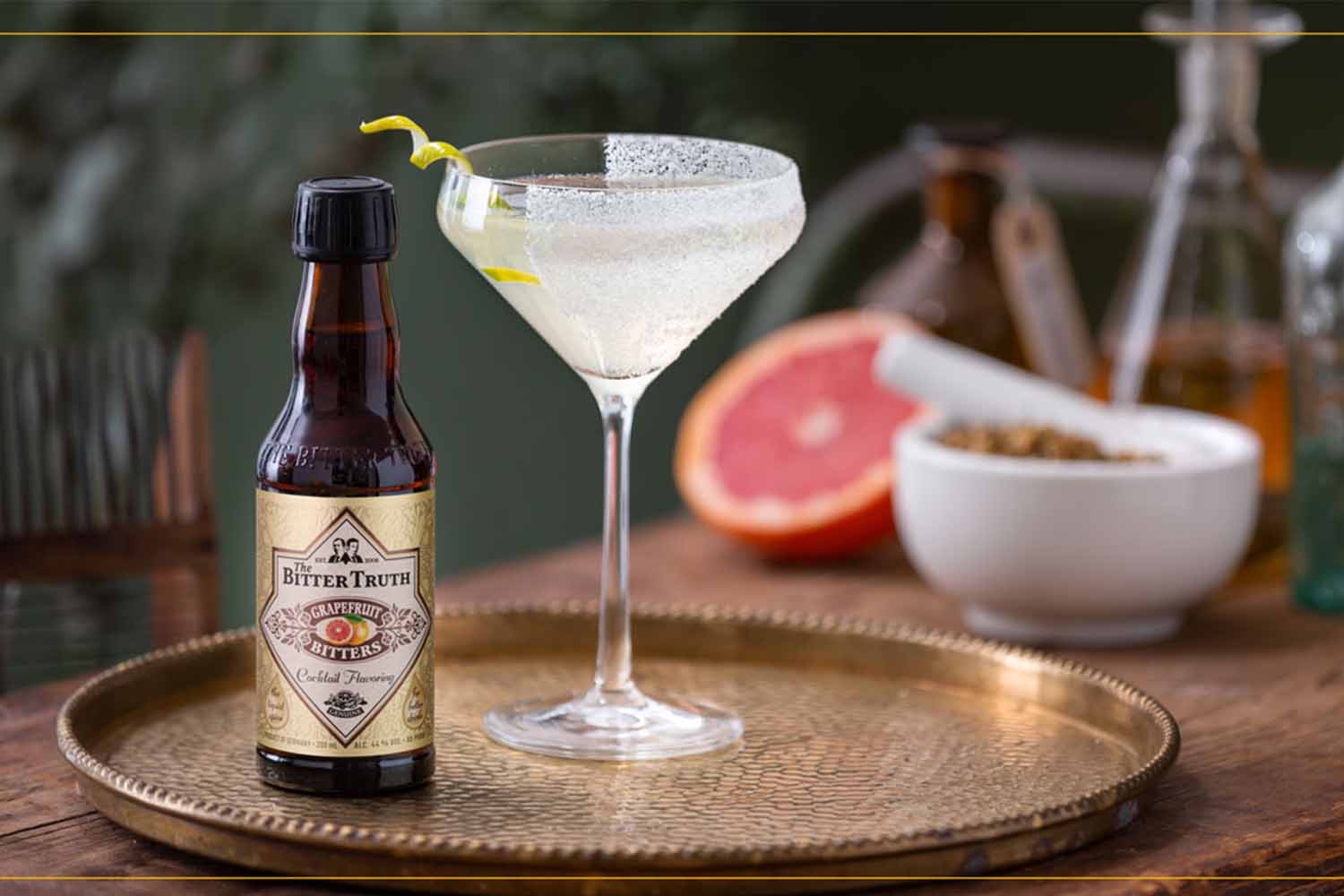
Fruit Bitters
Beyond orange bitters, there is a universe of fruit-derived bitters that can enhance a variety of cocktails. If you like orange bitters, grapefruit bitters can provide the same flavor profile with a bit more punch and bitterness. You can also augment any cocktail that calls for citrus with lemon or lime bitters, though there isn’t much you can’t accomplish with fresh fruit and Angostura.
Beyond citrus, there are plenty of other fruit-flavored bitters, the most popular of which are cherry bitters, a cordial confection often made with maraschino. As with most bitters, cherry bitters are excellent in an Old Fashioned or Champagne Cocktail, but they also fit well with tiki-style drinks like Singapore Slings.
Much less versatile fruit bitters also exist, like peach, plum and cranberry. These aren’t necessary purchases unless you’re looking for an atypical variant on a classic cocktail or are recreating a recipe verbatim from a mixologist you truly love.
5 Ways to Use Cocktail Bitters in Your Kitchen
Borrow from your bar cart to whip up these sweet and savory recipesHerbal and Spice Bitters
On the opposite side of the flavor spectrum from fruit bitters are those made from everyday herbs and spices. Herbal bitters add savory elements, giving a cocktail depth and character. If you need one herbal or spice bitter, go for celery. Made from celery leaf, ginger root and lemongrass, celery bitters go best with tomato-based cocktails like Bloody Marys or Caesars.
Cardamom bitters give drinks like Espresso Martinis a more South Asian feel. Ginger bitters can do the same, even giving a warming sensation to a drink. Dash carefully because a little goes a long way. Rhubarb bitters are punchy and a bit sour, which is a fun element to throw into a Whiskey Smash or Kamikaze. Mint bitters are a lot more subdued and edge towards the sweeter side. Use them to make a coffee cocktail into a dessert drink or to amp up a Daiquiri.
Confectionary Bitters
Speaking of dessert drinks, there are a litany of bitters that evoke the patisserie. Coffee bitters are a resounding addition to any whiskey cocktail, but they also elevate White Russians and Brandy Alexanders, adding a roasty element. Chocolate bitters can be used in the same way but are much more exciting when mixed with mezcal to balance the smokiness and minerality. They also pair well with the bitterness of Aperol or Campari, like in a twist on a Boulevardier.
Woodier, nuttier options include toasted almond and black walnut bitters, which can make an Amaretto Sour taste like marzipan or a Rye Manhattan come off like a bittersweet pastry.
Specialty Bitters
By no means do you need to stock any of these in your bar — only if you have a specific cocktail in mind or want to show off for a particularly epicurean crowd. These niche elixirs are purposely made for a slim catalog of drinks, but with a little creativity, you can stretch that further.
Tiki and Jamaican bitters dial up the island-style trappings of Angostura and Peychaud’s, accentuating sweet lime and hibiscus elements. Dash a few drops into a frozen drink to cut down the sugary overtones and give your blender-made concoctions a depth of flavor.
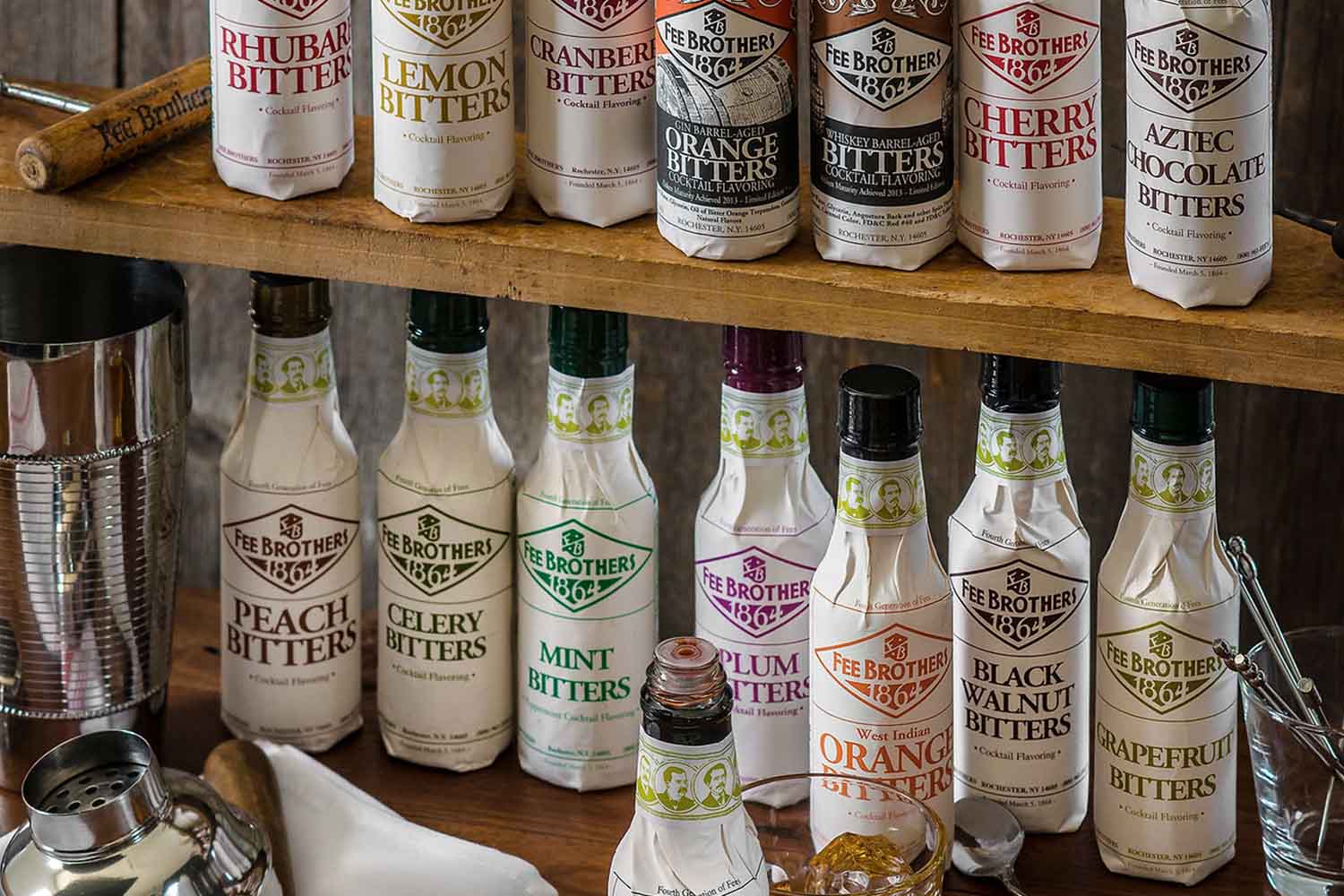
Where to Stock Up on Bitters
Because bitters are not full-spirit alcohol, you can buy them pretty much anywhere. Amazon stocks just about every major brand and some specialty brands. Total Wine is also a reliable online or in-person vendor, but most big-box grocers like Target and Walmart stock Regan’s, standard Angostura and Angostura orange bitters. Peychaud’s is also fairly common, especially in spirits-focused liquor stores. You can even order a 5-ounce bottle on InstaCart.
For something more direct, Fee Brothers is known for their incredibly varied line of bitters, often sold in variety packs. Ditto for The Bitter Truth. Milwaukee’s Bittercube provides a similar range of styles but with a slightly more elevated, small-batch formulation. Their All Day Bitters are perhaps the best craft-quality Angostura alternative on the market.
For more specialty styles, there’s Bittermens, a New England company that makes brash, show-stealing bitters like Buckspice Ginger Bitters and Winter Melon Bitters. Their ‘Elemakule Tiki Bitters define the faux-Polynesian, Trader Vic’s style of cocktails. For a more culinary experience, New Mexico’s The Bitter End has formulated a line of bitters that bring Thai, Moroccan and Indian flavors into the shaker tin. Of note, their Chesapeake Bay bitters emulate Old Bay and give Martinis and Bloody Marys a chef’s touch.
Join America's Fastest Growing Spirits Newsletter THE SPILL. Unlock all the reviews, recipes and revelry — and get 15% off award-winning La Tierra de Acre Mezcal.
